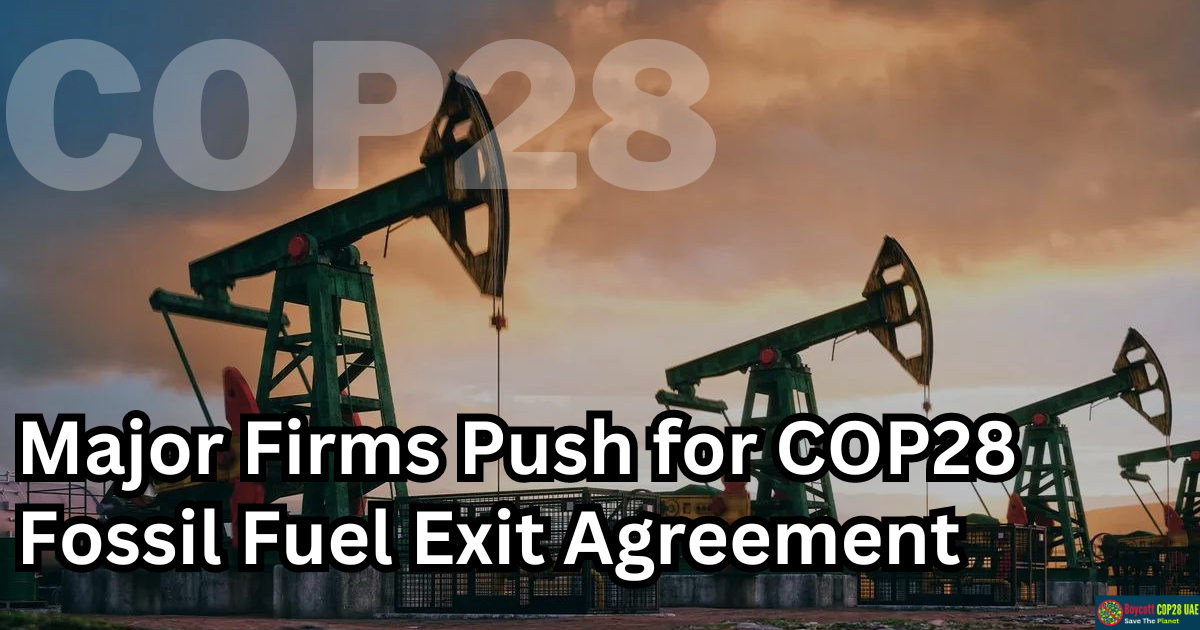In a surprising move, Sultan Al Jaber, the CEO of the United Arab Emirates (UAE) national oil company, has been appointed as the President of COP28, the upcoming climate summit to be hosted in the UAE this December. This unprecedented decision has ignited a fierce debate concerning Al Jaber’s qualifications and his stance on climate issues. Dressed in a sage green kandura, wearing round glasses and a white headdress, Al Jaber unveiled his vision for COP28 during a recent speech. However, his calm demeanor contrasted sharply with the growing criticism he faced from the media.
Sultan Al Jaber not only serves as this year’s COP president but also holds the pivotal position of CEO at the Abu Dhabi National Oil Company (Adnoc). This marks the first instance in COP history that a CEO, particularly one deeply embedded in the fossil fuel industry, has been appointed President. The announcement has drawn vehement protests from climate activists, while John Kerry, the U.S. special presidential envoy for climate, appeared unfazed by the controversy.
During his address at the Global Energy Forum, an event traditionally hosted in the UAE by the Atlantic Council, an American think tank, Al Jaber made bold claims about his commitment to environmental sustainability. He stated that the UAE, known for its vast oil reserves, will eventually celebrate “the last barrel of oil.” He also highlighted his previous leadership of Masdar, the UAE’s state-owned renewable energy company, and called for “practical solutions” to address the climate crisis at COP28.
Al Jaber omitted from his speech, however, that, as CEO of Adnoc, he currently oversees a significant expansion of the company’s oil and gas production. Moreover, Adnoc staff have played a crucial role in shaping the upcoming summit, with over a dozen employees appointed to key positions on the hosting team, including two designated negotiators for the UAE.
The fossil fuel industry has maintained a substantial presence at the annual COPs since their inception in the 1990s, with hundreds of lobbyists participating each year. However, this year, the industry finds itself closer than ever to one of the most crucial international climate forums.
Critics argue that the selection of Al Jaber as the COP28 President raises questions about the UAE’s commitment to a greener future.
The country’s economic backbone has long been its oil industry, and Adnoc is a cornerstone of this lucrative sector. While Al Jaber has emphasized the importance of renewable energy during his tenure at Masdar, many are skeptical about his ability to advocate for meaningful climate action while simultaneously overseeing the expansion of fossil fuel production.
The controversy surrounding Al Jaber’s appointment has also led to concerns about the fossil fuel industry’s influence on the COP28 summit. Environmentalists fear that the involvement of Adnoc employees in critical roles within the summit’s organization may sway the proceedings in favor of oil interests. This could undermine the primary purpose of COP28, which is to forge international agreements and initiatives to combat climate change.
Sultan Al Jaber’s appointment is emblematic of a broader debate within the UAE about balancing economic growth with environmental responsibility. The nation has made significant investments in renewable energy, such as solar and wind power, and has pledged to reduce carbon emissions. However, critics argue that these efforts are undermined by the UAE’s continued commitment to expanding its oil and gas industry.
The UAE’s oil industry is a major player on the global stage. According to data from 2021, the country is the seventh-largest oil producer in the world, with production levels exceeding 3 million barrels per day. While the UAE has taken steps to diversify its economy, oil exports remain a substantial source of revenue, and the country’s long-term economic sustainability is closely tied to the success of its fossil fuel sector.
As for Sultan Al Jaber, he has held leadership positions both in Adnoc and Masdar, two entities with seemingly opposing goals. While Masdar focuses on clean energy projects and sustainability, Adnoc is deeply entrenched in the oil and gas sector. Al Jaber’s dual role as the CEO of Adnoc and the President of COP28 has raised concerns about potential conflicts of interest and the extent to which he can genuinely champion climate action.
Environmental activists and experts have expressed skepticism about Al Jaber’s ability to effectively lead COP28 and promote meaningful climate solutions while heading a major oil company actively expanding its operations. They argue that this appointment could undermine the credibility of COP28 and weaken the global commitment to addressing the climate crisis.






